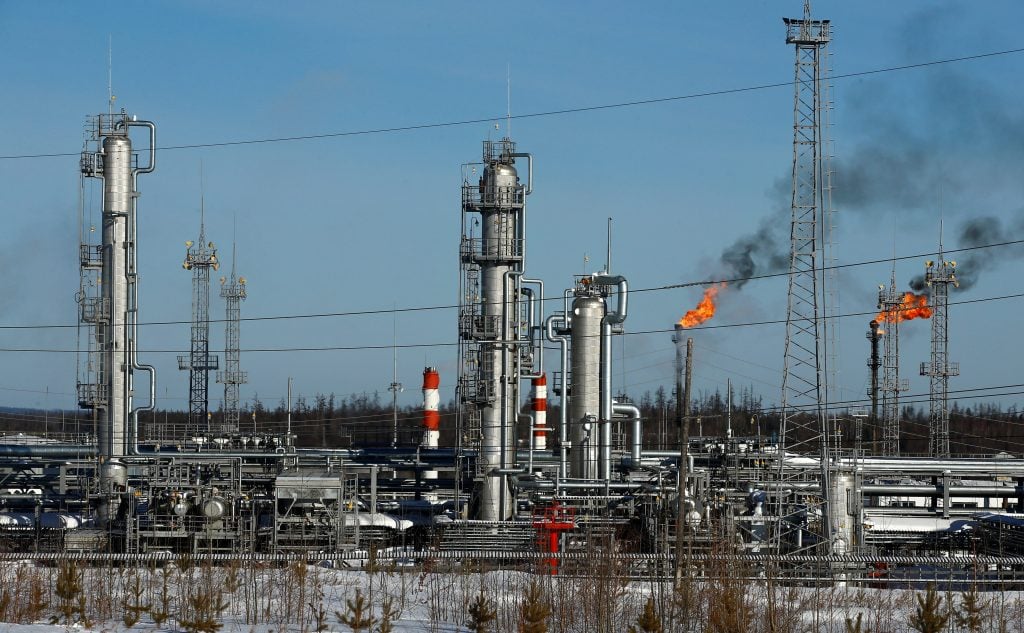- Italy is planning to ramp up Egyptian gas imports to help reduce dependence on Russian supplies.
- Eni signed a framework agreement that could provide up to 3 billion cubic meters of LNG this year.
- Europe gets about 40% of its natural gas and huge swathes of its oil imports from Russia.
Italy is planning to turn to Egyptian gas to help reduce its dependence on Russian supplies.
Eni, the Italian oil and gas giant, signed a framework agreement with state-owned Egyptian Natural Gas Holding Company (EGAS) on Wednesday, which it said would help maximize gas production and exports of liquefied natural gas (LNG).
The agreement, coupled with one signed last year to restart a liquefaction plant, will provide up to 3 billion cubic meters of LNG for Eni's European operations this year, the company said.
"The agreement aims to promote Egyptian gas export to Europe, and specifically to Italy, in the context of the transition to a low carbon economy," Eni said in a statement.
Eni and EGAS said they'd look for ways to maximize short-term gas production and increase jointly operated gas activities. Eni said it would ramp up exploration in existing blocks in Egypt, as well as newly acquired sites in Egypt's Nile Delta, Eastern Mediterranean, and Western Desert regions.
Later on Wednesday, Eni said that it had started production of newly discovered oil and gas supplies in Egypt's Western desert, which it said would provide around 8,500 of barrels of oil equivalent a day.
Eni started its Egyptian operations in 1954 and says it's the country's leading producer.
The West has imposed huge sanctions on Russia after it invaded Ukraine in late February, including targeting its huge oil and gas industry. Russia has the world's largest natural gas reserves and is the third-biggest oil producer, accounting for about 12% of global oil production.
In early March, US President Joe Biden pledged to ban Russian energy imports. But the US has little reliance on Russian energy supplies, and only 8% of its crude and refined product imports in 2021 came from Russia, according to the Energy Information Administration.
Europe, in comparison, gets about 40% of its natural gas from Russia, which has the world's largest reserves.
The European Commission has said it could reduce EU demand for Russian gas by two-thirds before the end of the year under a plan to diversify supplies and speed up the rollout of renewable gases. The EU has agreed to stop imports of Russian coal starting later this year, but hasn't yet announced an embargo on Russian gas and oil.
Some countries and companies have taken individual action, though.
Roberto Cingolani, Italy's ecological transition minister, has said that the country would need at least three years to completely cut off gas imports from Russia, per Reuters. Italy gets around 40% of its gas imports from Russia, the publication reported. The country has agreed to ramp up its gas imports from Algeria by around 40%.
Germany has halted plans for the Nord Stream 2 pipeline and Lithuania said it became the first EU country to completely cut off Russian gas imports.
BP said it would dump its 19.75% stake in Russia's state-backed oil giant Rosneft, which it said would result in $25 billion in non-cash charges by the end of the first quarter, while Shell is writing off up to $5 billion in assets after it pulled its Russian operations.
Russia's finance ministry said last week that revenue from the country's oil and gas sales in March was 38% lower than it had initially forecast.
